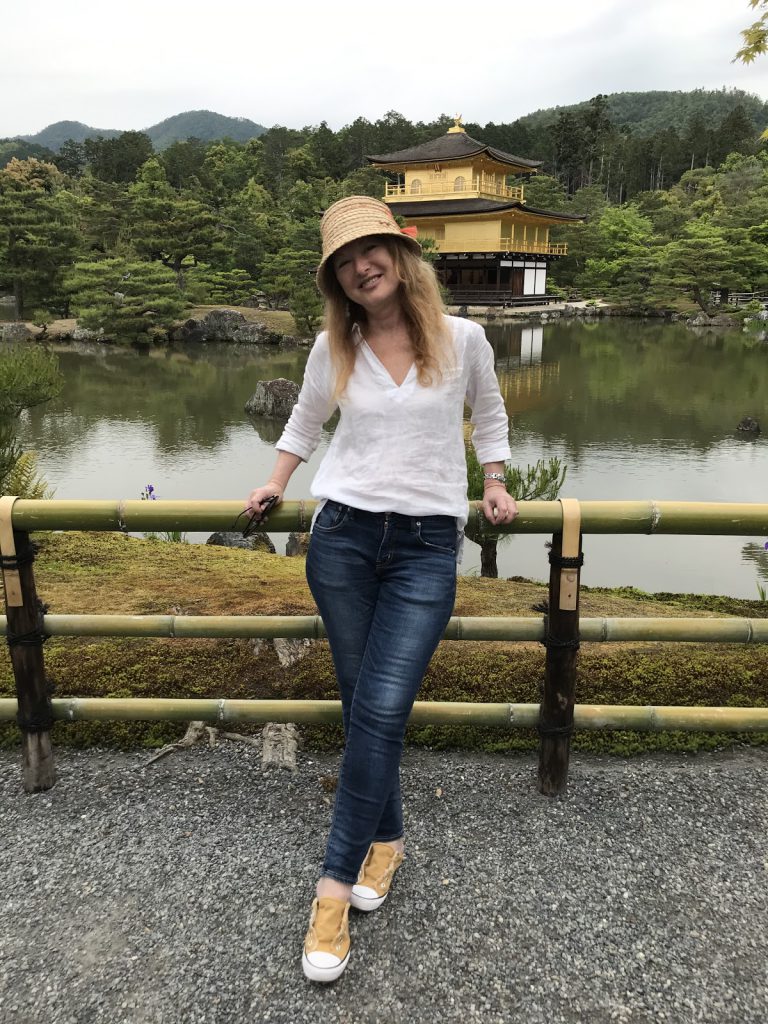
Eva Izsak-Niimura has lived on three continents and worked across four jurisdictions. She was born in Transylvania (a Hungarian-speaking province of Romania) and educated in Israel, graduating from the Hebrew University. Eva practiced with some of the largest law firms, including Latham & Watkins in New York, Hogan Lovells in Paris, and is now with Anderson Mori & Tomotsune in Tokyo. She also served as Deputy General Counsel with INVESCO, an international asset management company in New York and Natixis, a French investment bank, in Paris. With such a diverse background, Eva is able to speak English, French, Hebrew, Hungarian as well as some Japanese and Romanian. We asked Eva about her personal and professional experiences and whether she has a message to the younger generation of female lawyers looking to make their way in the professional world.

目次
My career: spanning across jurisdictions and roles
“I was with some of the largest law firms, but as an in-house counsel for more than ten years at major financial institutions in the US and Europe, I experienced first-hand the pressures and practical issues such organizations are facing and how they need the legal advice they receive packaged in a business-friendly way. I had to be the decision-maker on various issues and take a strategic view regarding the cost-benefit analysis, risk tolerance and other complex problems that had to be handled, often under tight time constraints. Now, back with a law firm, I can identify with, and better understand, the needs of our clients.”
At this point in her career, Eva sees her value added in bridging the gap between western companies’ expectations and the Japanese legal culture.
“The U.S, Israel, France and Japan have very different legal cultures and being aware of those differences is crucial to minimizing misunderstandings and providing the best service. U.S. and Israeli clients, for example, expect very practical advice from their lawyers and see them as equal partners early on in the process of structuring a business transaction. I am under the impression that in Japan, and to some extent Europe as well, there is more of a distinction between business and legal; lawyers are regarded as scholars, having tremendous knowledge and expertise in their respective fields as well as providing invaluable access to the administration and regulators. The difference in expectations, if not properly managed, can lead to frustration down the road. While complete understanding between western and Japanese businesses is not always attainable, it is possible to find practical solutions that benefit, and are satisfactory to, all parties.
I have deep respect for, and am familiar with, Japanese and western business cultures – both of which stem from long histories and are based on profound philosophies. Hence, I am in a unique position to comprehend each party’s needs and work together to reach collaboration and a positive outcome. Seniority enables me to look at the strategic aspects of a problem; having lived through many situations, including the financial crisis, one learns to evaluate and coordinate the different components of complex matters and end up with workable solutions and optimal results for the client.
My mission, in both my personal life and work, is to bring people together, to give them opportunities to interact, come up with new ideas and create a better business and personal environment.
Being the only Israeli lawyer in Japan, I also see it as my goal to assist in the development of business relations between the two countries, which have already come a long way.”

Working against the grain: the only woman in the meeting room
Having spent many years on Wall Street, Eva has worked in some of the most male-dominated industries and environments. She often found herself the only woman in the meeting room and, while she does acknowledge it is not always easy, she encourages young women to never let that be a reason to give up.
“I never found being a woman a hindrance or something that stopped me from working towards my goal. As a matter of fact, I am somewhat “gender blind” and hardly even notice being different from my male colleagues. If one acts confidently and knows what she is doing, people will, inevitably, treat her as such. There is no contradiction between being feminine and a successful business woman – on the contrary, the two can very well compliment each other. We all have our advantages and disadvantages – beauty, intelligence, place of birth, social background, just to name a few; we should use what we can to our benefit, take advantage of our uniqueness and ignore any excuses as to why we cannot succeed. I believe one can do whatever he or she sets their mind to. For the younger generation, my advice is to travel and try spending time in other places than your home country. Do not be afraid — even the negative experiences in life enrich us.”

Writing
Eva has other interests and, in particular, she is in the process of publishing her first novel in France.
“I have always valued writing and, even as a child, aspired to be a writer. My novel deals with taking account of one’s life, reflecting upon the choices we made and, ultimately, getting comfortable with them. As we age, saying farewell to some aspects of our lives – having young kids, certain relationships and careers – is a process of mourning. And, most painfully, we part from our aging mothers, who are becoming more and more feeble. In the process, we must grow as independent, mature people. But our parents always stay within us. It is a very complicated and complex goodbye. As I went through it, I felt a need to share those conflicting emotions.”

Managing a life across different cultures
“Overall, I would say that my experiences have made me a more open person. I find no distinction between “us” and “them” regardless of one’s respective race, nationality or religion. We should appreciate and celebrate the richness of our backgrounds, having different talents and interests, but at the same time respect the “other” as an equal and remember that, at the core, we are more similar than different.
Learning and familiarizing myself with the culture I live in and yet always remaining an outsider, examining it with an objective eye, gives one an advantageous point of view, which I cherish.





